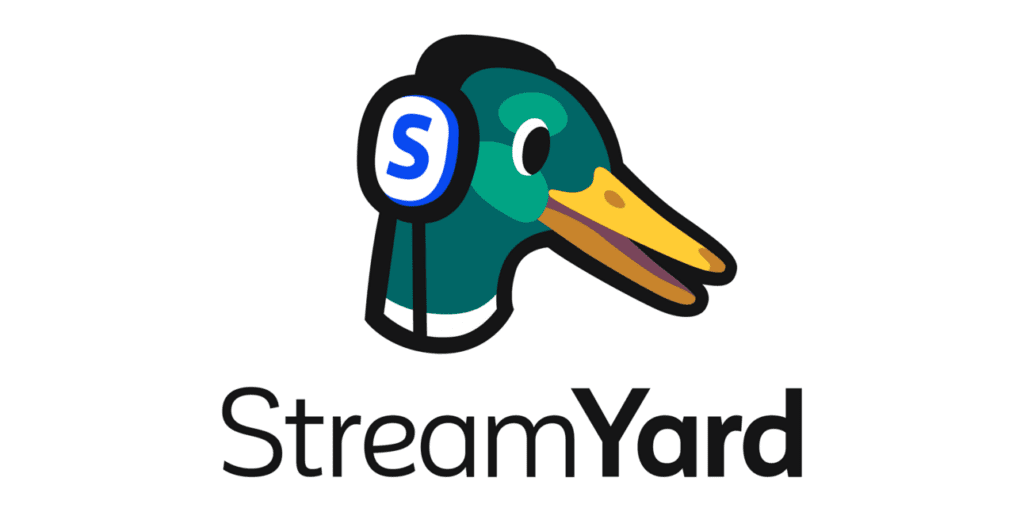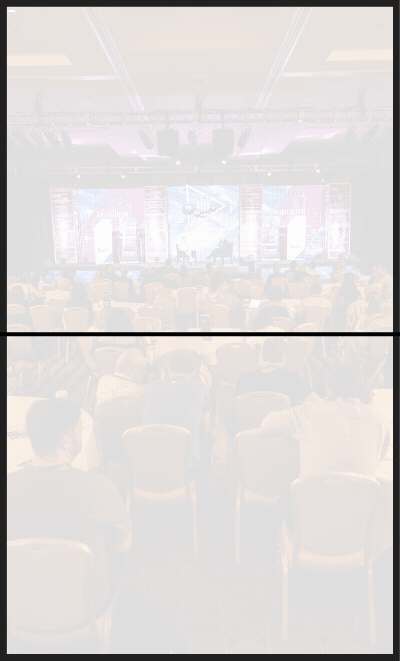
Presented by StreamYard
Meaning cannot always be put into words. Often it’s a heightened aliveness you feel in the presence of the work.
Rick Rubin
Is It Time to Quit Your Podcast?
Have your podcast downloads taken a nosedive the past year?
Is producing your show negatively affecting your relationships?
Do you not enjoy making your podcast anymore?
Or maybe…all three?
It might be time to acknowledge a crossroad: to stick it out, or to quit.
In Seth Godin’s book The Dip, he refers to two scenarios in which quitting is the better option: the Cul-de-Sac and the Cliff.
The Cul-de-Sac is a dead end. No amount of work will lead to getting your show where you want it to be.
The Cliff is when your show might be rewarding for a while, but will eventually lead to a swift, painful fall.
Quitting doesn’t necessarily mean walking away. Quitting can also mean stopping the way you’ve been doing things—going back to the drawing board and restructuring the format, hiring additional hosts (or replacing old ones), blowing up the marketing plan and rebuilding it from the ground up, completely rebranding the show, analyzing listener stats and using them to create a spin-off idea that will better engage your target audience.
They say winners don’t quit. The truth is, winners understand how to leverage quitting for the benefit of their work, their happiness, and the well-being of those around them.
Hey, podcasters and content creators! Level up with StreamYard, your go-to for live streaming and podcasting. Simple, powerful, stable and easy to use. Best part? No hidden fees, no trials – just pure creative bliss. Ready to captivate your audience? Dive in, sign up free today!
Signal Flow: Sarah van Mosel
Industry game changers and valiant minds from creative professions share their wisdom, adversities, and paths to innovation.

Sarah van Mosel is the Co-Founder of Death by Duck Games, an independent game studio that turns podcasts into games and interactive experiences using AI. Prior to Death by Duck, she worked at iHeartMedia as EVP of the iHeart Audience Network (iAN) which offers audience-based buying at scale across streaming, podcast, and data-informed broadcast inventory. Sarah first entered the podcast industry as VP, Sponsorship at WNYC. There, she built the ad tech and revenue infrastructure around podcasts including Radiolab, Freakonomics, and Here's the Thing with Alec Baldwin, and launched public radio podcast network, WNYC Studios. She was a founding member of the IAB Podcast Working Group in 2013, which established best practices in podcast measurement, and served as the working group co-chair for many years.
At Death by Duck, we work with podcasters to turn their shows into games and interactive experiences with AI. I've spent many years in the podcast space, working closely with successful creators. Even if their advertising slots are 100% sold out, how do they expand the pie? I wanted to figure that out and also bring them closer to their audiences, really delight them in a new and exciting way.
I often say “interactive experience” rather than “game.” I've noticed that, as I’ve been talking about these projects, many people were like me before my gaming transformation. They hear “game” and they immediately think Grand Theft Auto, Call of Duty, games like that. And that turns them off to possibility. They have no idea games can be as beautiful and as wide-ranging as any other medium.
The gaming industry generates more revenue than all other media combined. It's almost like the fossil fuel industry, it’s huge.
We just launched our first game with Hidden Brain. It's a once-a-day brain training activity in the App Store.
When I told Shankar Vedantam (of Hidden Brain) what we were thinking about, he was like, let's do it. Let's see this as an experiment. Let's see what we can learn. His show is all about where the brain and psychology intersect, how the brain has an impact on our day-to-day happiness.
It's good to exercise your brain, and it’s also fascinating how this cultural piece comes into play with the Hidden Brain game. I'm a white lady and it tends to be easier for me to identify subtle differences in other white lady faces. Whereas it may be more challenging for me to notice differences in Asian male faces. So by creating the Hidden Brain game, we essentially have a puzzle face that you have to match with one of five other faces, that could be exactly the same or a little bit different. They could be aged, they could have glasses, they could be upside down, they could be photo negative. So it's training you to look even closer, so you're a better citizen, and you're also sharpening your mind.
With the Hidden Brain game, we use AI to create the face images. So none of the people are actual human beings. Shankar did a lot of reporting on face recognition and how some people are face blind, and how when your brain looks for very specific small nuances, similarities, and differences, you're forming more neural pathways and staving off things like dementia.
Before realizing we wanted to integrate AI into our game creation, I uploaded a transcript of a publicly available fiction podcast to ChatGPT. I asked it to give me the five primary topic points from this transcript and then turn one of those into a very simple first-person explorer game. 30 seconds later, I had this code, which I put into one of those online testers where you just plop it in a box, and then you hit go.
That experiment gave me enough to say, okay, this is not about taking over people's jobs or making coders irrelevant. It's about shifting your focus away from putting the bricks in the wall to being the architect. So you're applying your judgment as a human and your taste. And just letting the AI be a tool, like a pencil, like a keyboard, like anything. That blew my mind.
It made me wonder…are there other podcasts with a large back catalog of content they could plop into their own AI and train their own large language model to slice and dice it in fun and interesting ways that they can own?
If you're asking me, as a person who can use AI to create efficient processes, it's great. But if I'm a member of a writer’s union and now all of a sudden all of the historical work I've written has been, without my permission, put into an AI and I'm being made redundant by my own creativity, and not getting any rights to that… That’s problematic. I know there are issues we all need to be careful of, particularly when it comes to people owning the rights to their own voices and then licensing them out. And then of course, the writers’ strike came up. And that highlighted some major issues around IP ownership and identity, particularly in the entertainment and creative world. So I don't take its use lightly. There are issues with AI we need to resolve that will fundamentally change the way creative things are made, sold, and exchanged.
I had a tiny dalliance with Angry Birds back in the day, but that was about the extent of my gaming experience. I have to give big props to my partner, Ryan Bartley. I was kind of an anti-gaming individual before he showed me the way.
Ryan gave me a PhD in gaming. He showed me Zelda, he showed me the shoot 'em ups, he showed me Hogwarts when it came out. It's fun to have a partner who's really good at it. Then you can enjoy the story and not get frustrated because you can't get past the first level.
That’s when I was like, okay, I'm the idiot, I'm the one not embracing this medium. Let me take down my walls and open my mind to why people love it so much.
I’ve found that gamers all put their arms around each other and help each other out. They share things like, “Oh, there's actually a bug here. Don't get frustrated. It's not you.” That camaraderie made me feel like part of a larger thing. And that's when I got it. This isn’t the gaming world I thought it was, there's so much depth and connection here.
Whatever you're putting out there, podcast YouTube videos, TikToks, or a video game based on your podcast, it’s its own product. Make sure it's valuable to the people that find it, or they're going to have a negative impression of what you're doing in that space. Make it of the quality your audience expects.
Further Exploration
Here’s a quick brain snack: a delightful conversation between Bill Farmer (the voice of Goofy) and Simon Sinek.
ICYMI:
Enjoying The Noise Gate? Why not share it with a fellow podcaster?
Until next time, have a bold week.
– Doug
For advertising information, contact Kristy at kristy@podcastmovement.com





Join the Movement